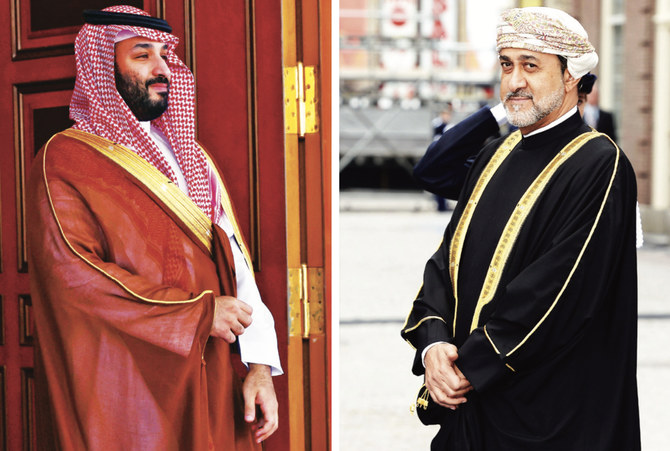RIYADH: Saudi Crown Prince Mohammed bin Salman’s visit to Oman, the first stop in a tour of Gulf states, is expected to build on the talks that Oman’s Sultan Haitham bin Tariq held with King Salman during his visit to the Kingdom in July.
On the agenda are issues of mutual concern and ways to promote the interests of the Kingdom and Oman as well as “fulfill the aspirations and hopes” of their peoples.
The Omani news agency ONA described the visit as a reflection of the “time-honored and historical” ties between the two Gulf countries.
For over half a century, Saudi-Omani relations have been characterized by cooperation, mutual respect and understanding on various regional and international issues.
Likewise, connections at the individual level run deep thanks to bonds of history, shared Arab customs and traditions, and a common Gulf Arab heritage.
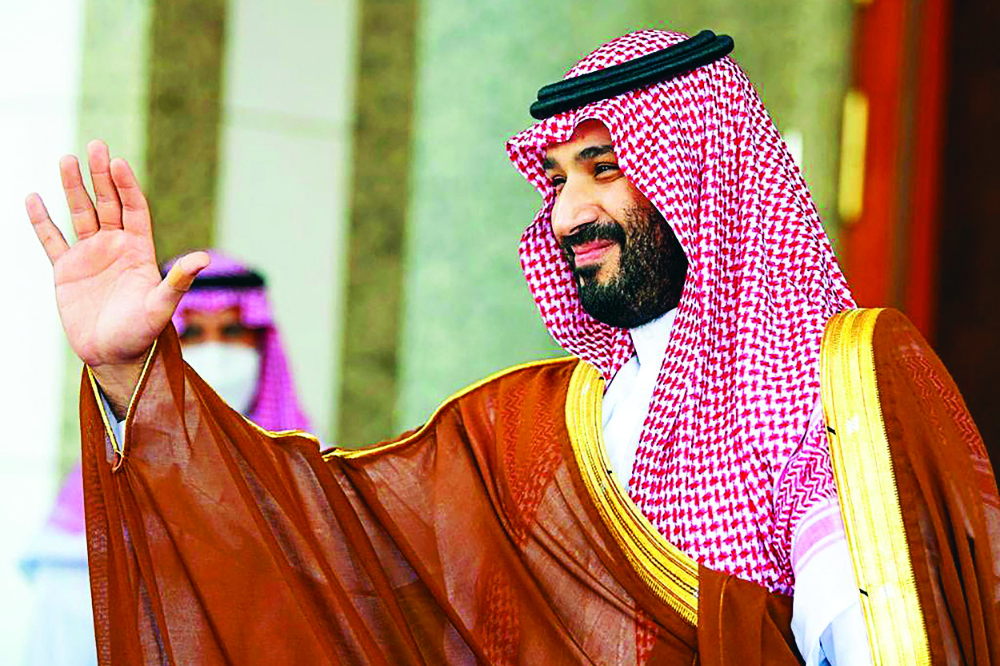
Crown Prince Mohammed bin Salman will visit Oman during his tour of the Gulf. (SPA)
The two countries coordinate their actions under the umbrella of the Gulf Cooperation Council in accordance with the bloc’s common visions and strategic goals, with a view to achieving integration between member states in different fields.
A similar cooperative spirit informs their roles at the Arab League, the Organization of Islamic Cooperation, the UN and various other international bodies.
Sultan Haitham’s visit to Saudi Arabia produced promises of cooperation in different fields, notably real estate development, tourism, petrochemicals, manufacturing industries, logistics, information technology and banking systems. Also on the agenda was a project to establish an industrial zone in the Special Economic Zone in Duqm.
A memorandum establishing a coordination council was signed by the two countries, with the aim of ensuring continued consultation and coordination in matters of common interest in all fields. A separate agreement was signed to boost government and private sector trade and investment as well as cooperation in the fields of environmental and food security.
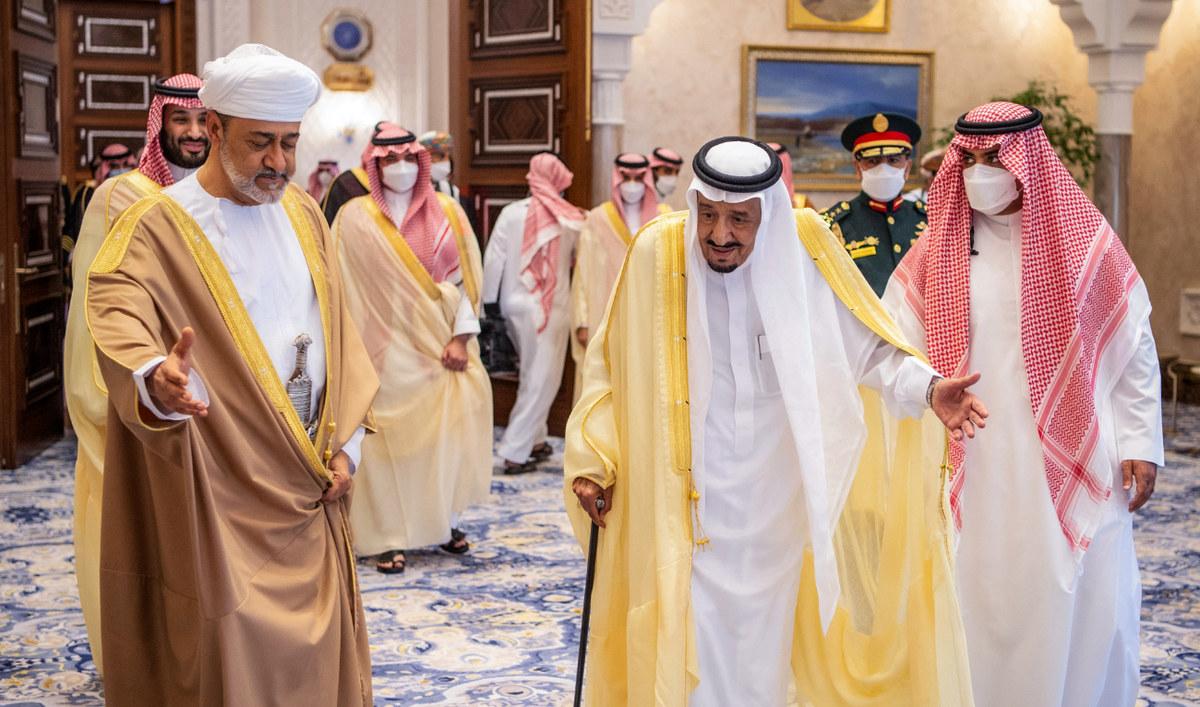
The crown prince’s trip is set to build on the talks that Oman’s Sultan Haitham bin Tariq held with King Salman in July. (AFP)
According to a joint statement, the two sides also agreed to expedite the opening of their border crossings to ease the movement of people and goods to “integrate supply chains in order to achieve the desired economic integration.”
They further welcomed the “effective communication” between ministers of the two countries and directed them to work toward concluding a number of cooperation agreements.
“Saudi Arabia is the largest economy in the Arab world and its leading economic engine, home to a quarter of the world’s petroleum reserves and the largest free market in the Middle East and North Africa region. It’s a key, valued trading partner of Oman,” Sayyid Faisal bin Turki Al-Said, Oman’s ambassador to Saudi Arabia, told Arab News on the eve of Sultan Haitham’s visit.
INNUMBERS
• SR 24bn ($6.4bn) total Saudi investments in Oman
• SR4bn total Omani investments in KSA
• SR2bn Saudi-Omani trade volume in first quarter of 2021
Ties between Oman and Saudi Arabia have remained strong in part thanks to regular bilateral meetings and shuttle diplomacy, a tradition established after the signing of the March 1990 agreement that finally delineated their 658 km border.
The border agreement signed at Hafr Al-Batin in Saudi Arabia solidified the relationship, sweeping away territorial disputes of the past and giving both states equal access to the area’s bountiful water resources.
Over the decades that followed, relations have grown from strength to strength, yielding ambitious economic partnerships and joint action on the GCC, which has seen a merging of strategic aims and a shared vision for economic diversification.
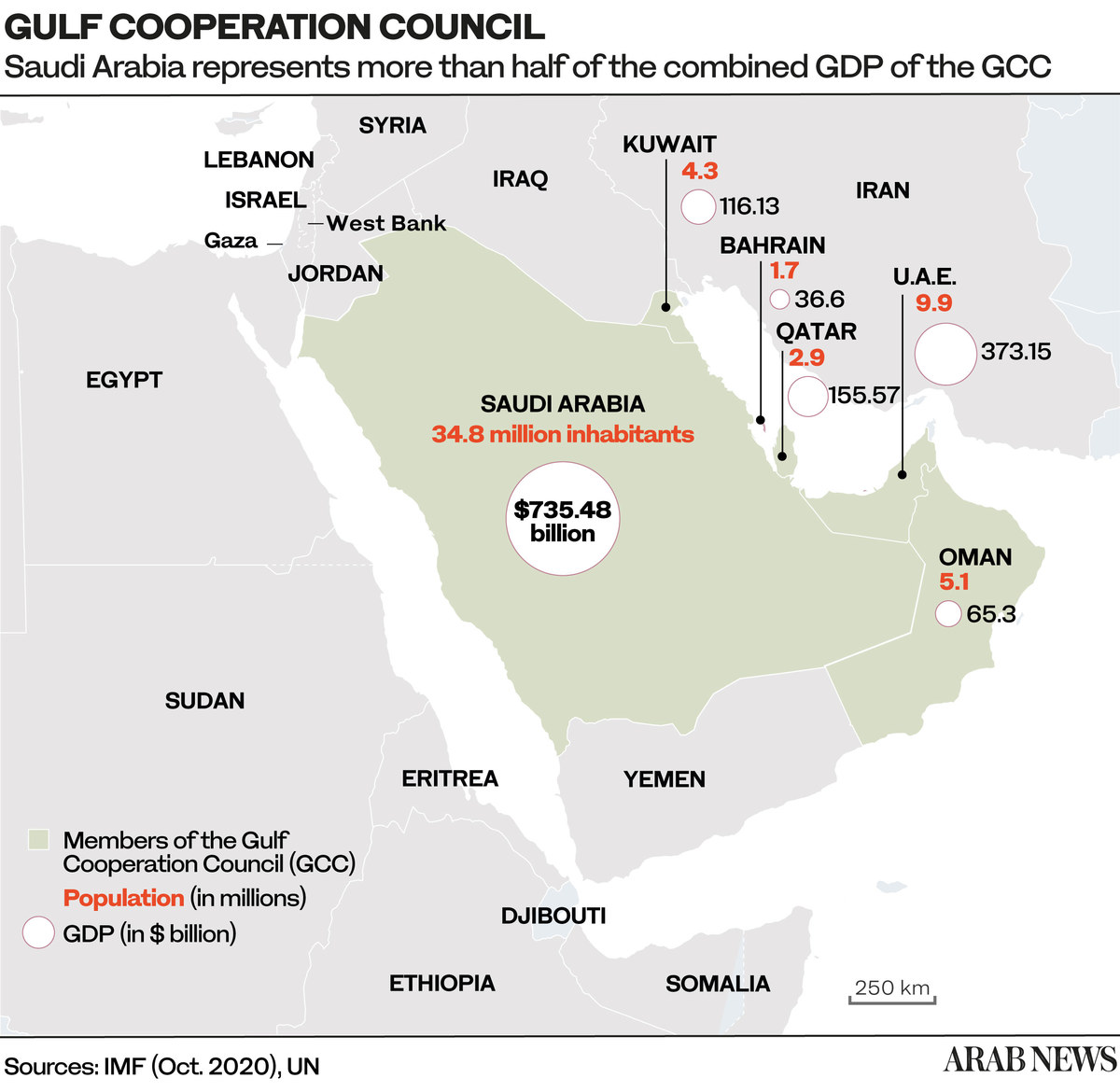
In 2006, Saudi Arabia and Oman agreed to open a new border crossing to help facilitate the expansion of trade.
Their engineers teamed up to build a Saudi-funded highway through Rub Al-Khali (the Empty Quarter), connecting Al-Ahsa in the Kingdom’s Eastern Province to Ibri in Oman, shaving some 16 hours off the journey time between the two countries.
Officials expect the road to be opened to civil and commercial traffic by the end of this year, which will potentially inaugurate a new era of business activities.
Once open, the new highway will cut the cost of import-export logistics, especially for merchants operating out of Oman’s ports of Sohar and Duqm, not to mention the potential boost to tourism — a sector both countries are keen to expand.
In particular, the Omani side hopes the new road — and perhaps even a future rail link — will encourage more joint investments at the Sohar Industrial Estate and the Special Economic Zone in Duqm.
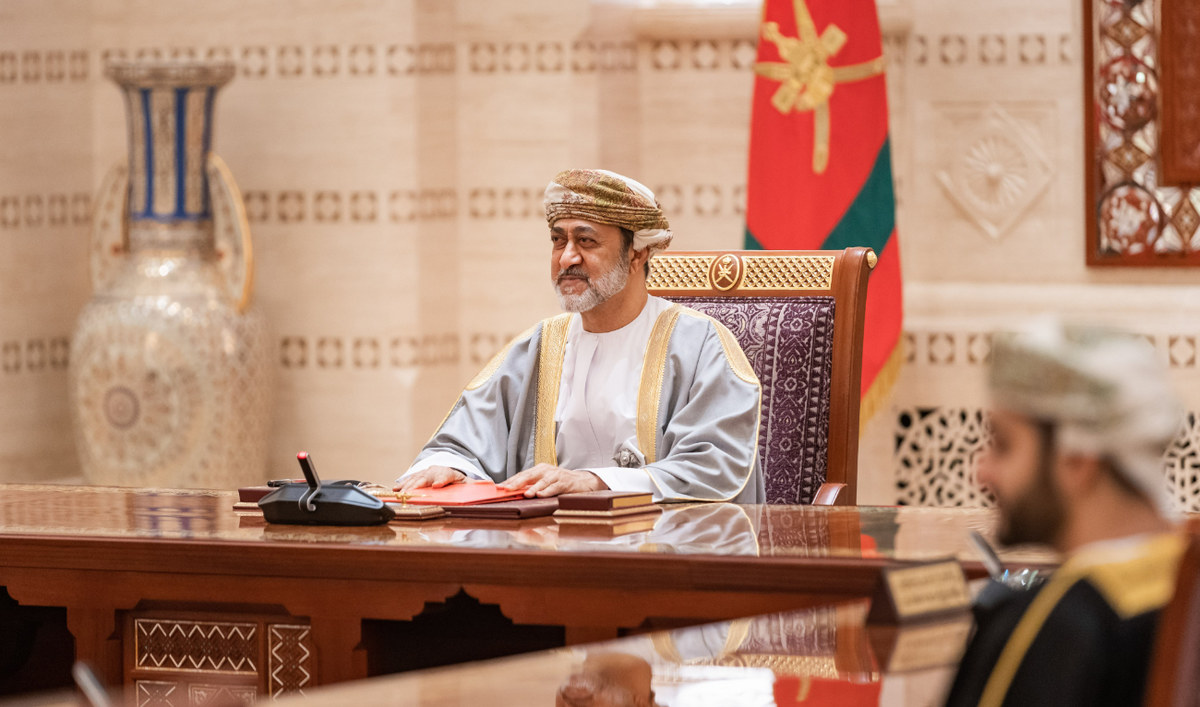
Sultan Haitham’s visit to Saudi Arabia produced promises of cooperation in different fields. (AFP)
Other partnerships include the development of Khazaen Economic City, the Salalah 2 gas-fired power station and the Salalah desalination plant. Saudi Arabia is also a big importer of Omani fish, making the development of the sultanate’s fisheries a matter of tremendous common interest.
Another core area of cooperation is the environment, with the two states pulling together to cut carbon emissions by 60 percent, plant billions of trees, and make the Saudi and Middle East Green initiatives a reality.
Sultan Haitham has welcomed the initiatives in previous talks with the Saudi crown prince. The two countries have also begun sharing expertise in industrial development, city planning and mineral extraction, with ministerial delegations recently meeting via video link to discuss new collaborations.
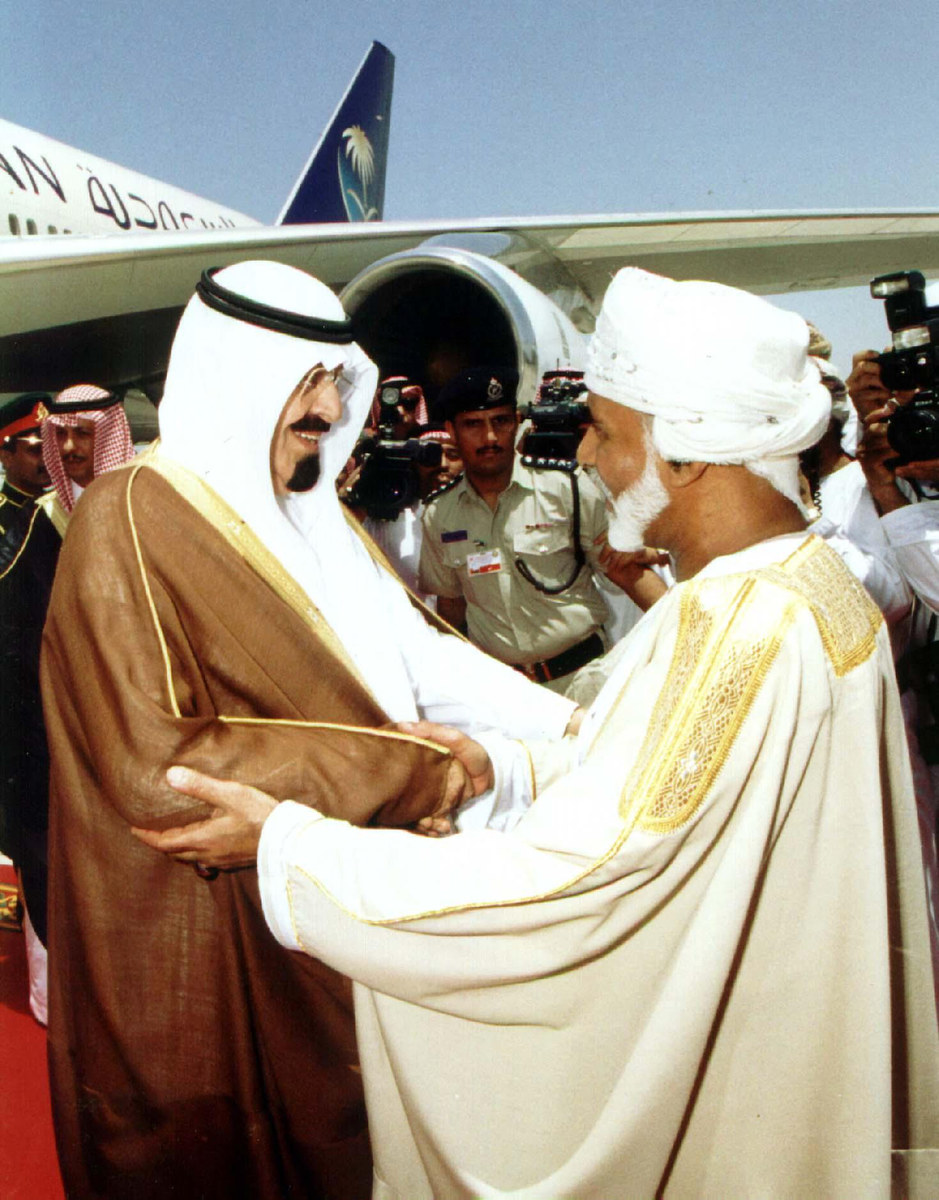
The crown prince’s visit honors the historical ties between the two Gulf countries. (SPA)
High-level officials and delegations have made reciprocal visits in recent months with the aim of integrating Oman’s Vision 2040 and Saudi Arabia’s Vision 2030 — two development and economic diversification agendas designed to create vibrant, modern economies that offer young citizens exciting new career paths and improve the overall quality of life.
Among a long list of Saudi businesses looking for investment opportunities in Oman are Al Sayadiyah United Co., which has been operating for about 40 years, trading in fish and seafood items originating in different GCC countries.
In comments to Arab News in September, Marwan Raffa, CEO of Al Sayadiyah, said he expected a very good experience in trade operations with Oman and was in touch with his Omani counterparts to expand business operations there.
Commenting on Saudi Arabia’s drive to deepen ties with Oman, he said: “Good relationships open up more opportunities.”


